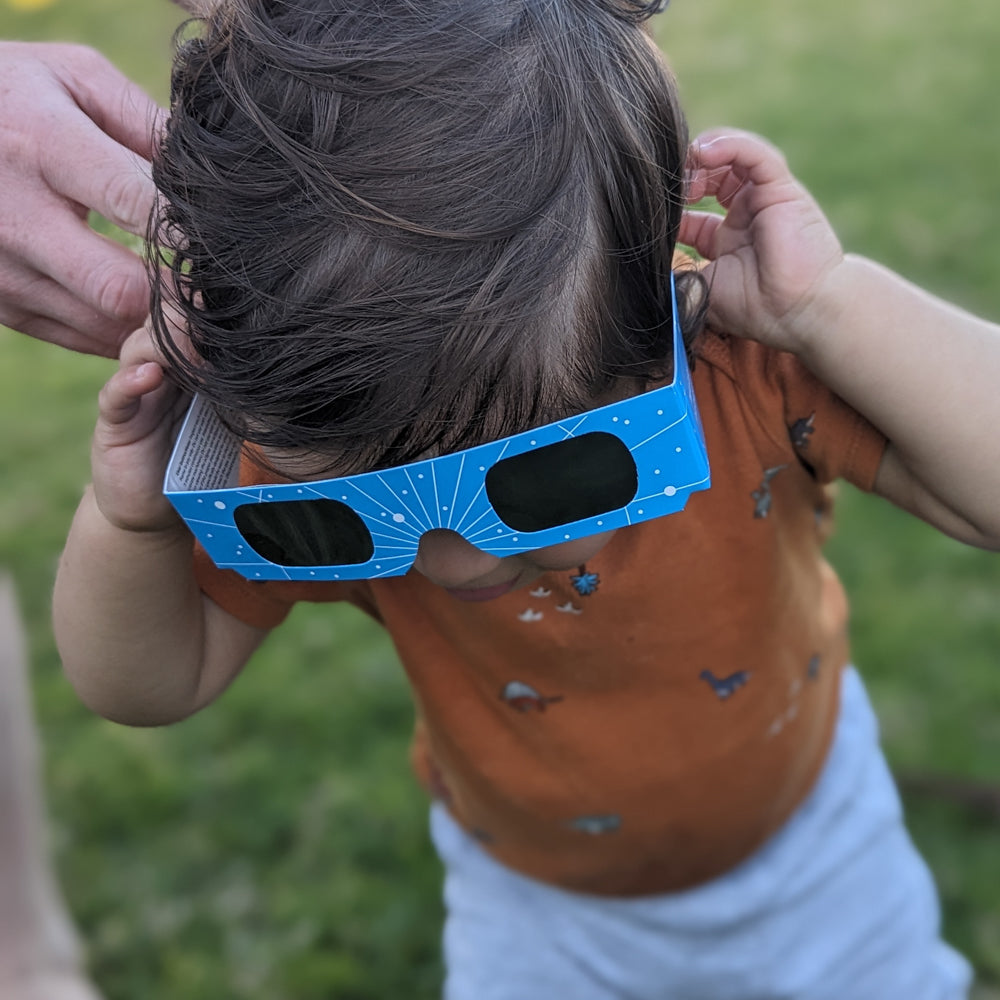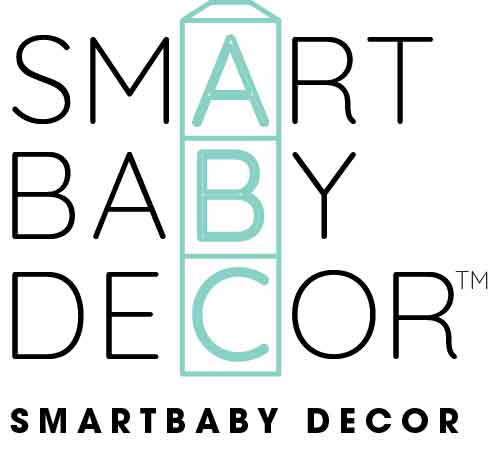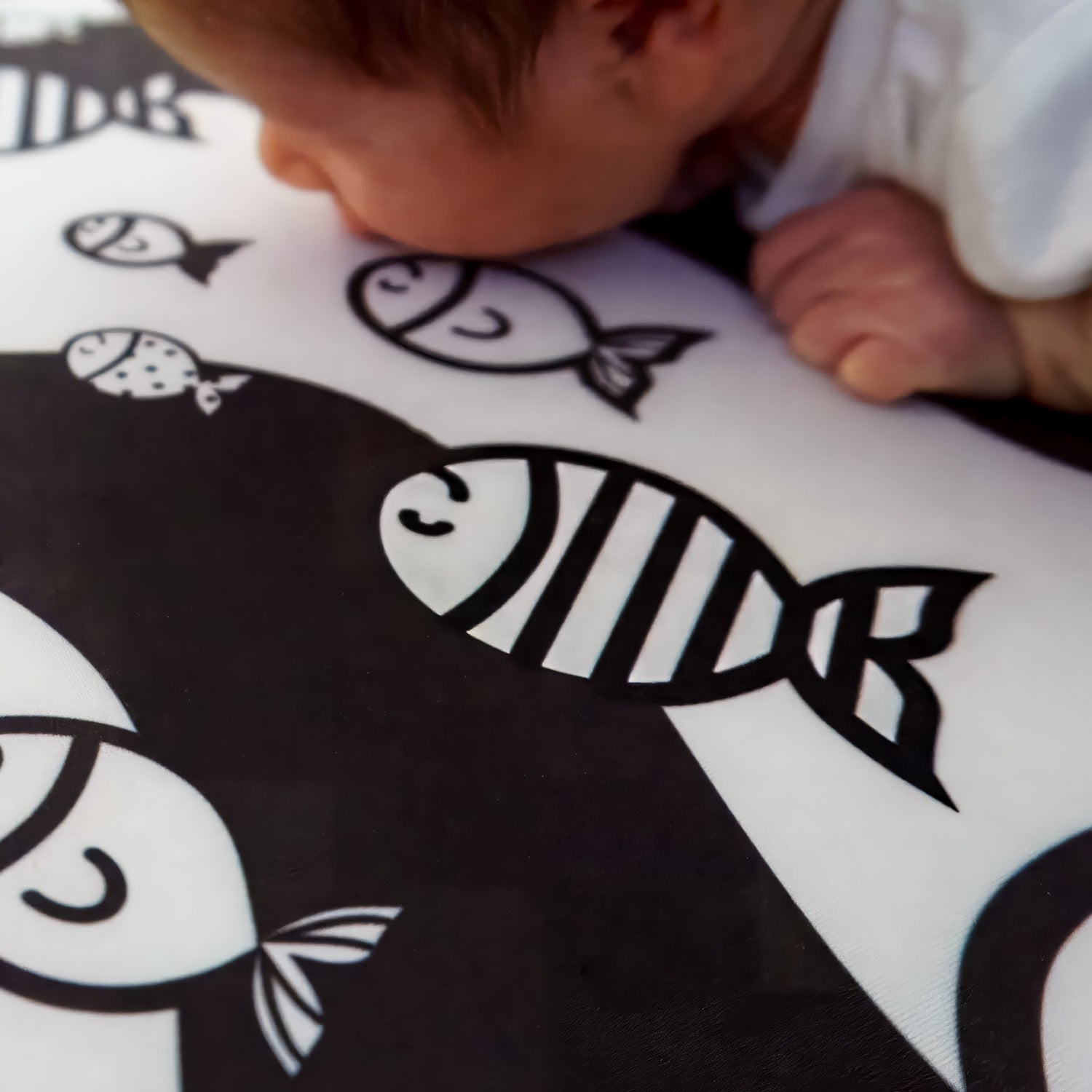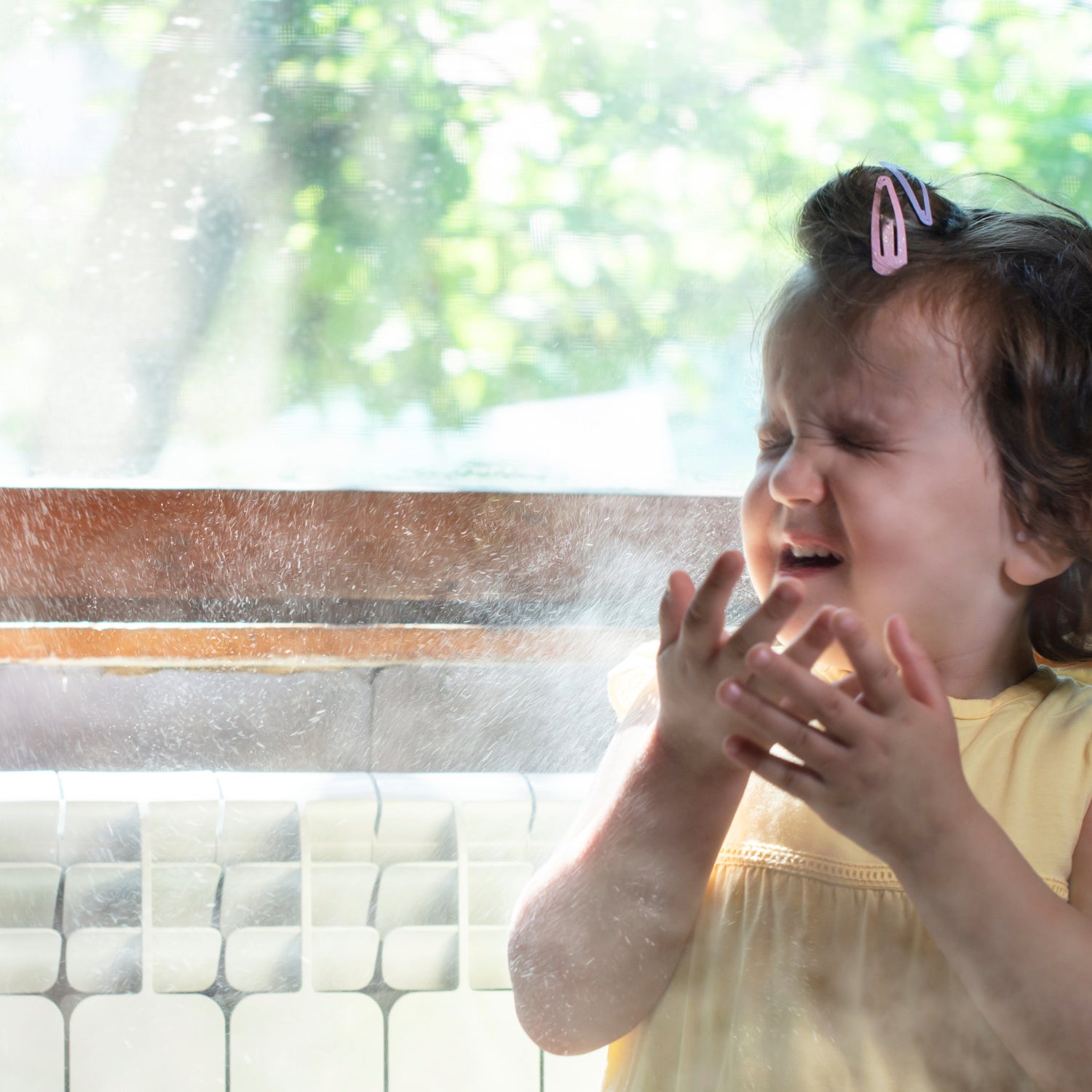
What parents of babies and toddlers should know about the solar eclipse
The solar eclipse is days away, how exciting! This spectacular event where the sun is completely blocked by the moon is happening on April 8, 2024 (at different times depending on where you are located). With all the buzz around this stunning moment in our near futures, eye safety is (and should be) front and center.
Why are solar eclipses dangerous?
We’ve all heard the advice to not look directly at a solar eclipse. This is not a myth or falsehood. It is absolutely true! The UV and infrared radiation during a solar eclipse is so damaging to our eyes there is no amount of time that is safe to be staring directly at the sun without eye protection. The radiation can literally burn the front and back of your eyes and cause temporary, or in some cases, permanent damage resulting in blindness. Since the back of our eyes don’t feel pain, the damage may not even be noticed until hours later.
Based on data from previous solar eclipses, children and young men are most likely to develop an injury. So, let’s talk about how to protect your children. The recommendations you probably already came across include:
- Talking to your child about not looking directly at the sun
- Wearing certified protective glasses the entire time (click here for a list of certified safe lenses from the American Astronomical Society)
What if your child doesn’t understand the rules?
As a pediatric optometrist and parent of a young toddler, I would seriously consider the benefit to risk here. Of course, I want my child to participate in a spectacular and rare event like this one, but since he’s too young to understand what’s happening, the safer choice may actually be to keep him inside. We picked up some certified solar eclipse viewing glasses recently and I tried them on him to see what he’d do.
Here he is:


So clearly, I can’t trust him to keep them on. He is too young to understand the instructions to NOT look at the big black circle in the sky as everything gets dimmer around him. So based on my child’s developmental stage, it’s probably better for us to be inside and consider tuning in to the NASA livestream.
For parents with babies or toddlers with older siblings, I totally get the draw to make this a family event. Or if you’re getting together with family or friends and want to take your baby or toddler along, what do you do then? Start by getting protective eyewear for your baby. You may have to modify adult-sized ones by cutting the sides a bit shorter so they fit better. A wide-brimmed hat, sunblock and keeping them in a carrier or stroller with a shade helps control where your infant can look. Since there is no safe time to look directly at the sun, you basically want to make it impossible for babies, toddlers, or any person who is unable to understand these instructions, to be able to do so – for their own safety. Remember, the damage can be painless, and especially with babies and toddlers who can’t communicate, the scary part is you may not even know their eyes were damaged until an eye doctor takes a look or you notice signs they aren’t seeing as well as they used to.
Wrapping it up
None of this is meant to scare you (okay maybe a little). I just want to make sure parents of really little ones have some guidance on how to protect their children’s eyes since a lot of the recommendations out there are geared towards school-aged kids. Just remember: your baby or young toddler doesn’t know what they should or shouldn’t look at and they usually aren’t great at keeping things on their face or head. You are their protection during an event like this. So, think about your plans for the big day. If you’re cool hanging out inside with your little one, great! If you want to take in this rare and spectacular event, that’s awesome! Make sure you have eye protection, and your baby has as many barriers to looking at the sun in place as possible!
Remember!
- Use these same recommendations for older children or adults with special needs who are not able to understand the instructions to not look at the sun directly.
- Don’t use regular sunglasses – you need ones specifically made and certified to view solar eclipses.
- Just because looking at the eclipse doesn’t hurt it doesn’t mean you aren’t damaging your eyes.
- Babies have bigger pupils than adults so there is a bigger opening for harmful rays to get in AND a clearer path to the back of the eye where damage is more likely to result in permanent blindness.
- An eclipse can still be fun indoors! Tell your little one someone is turning out the lights for the whole world!
- And my last tip: Try protective glasses with your child ahead of time. They may surprise you and tolerate the lenses better than you expect. Or, if your kid is like mine, they’ll very quickly show you why they can’t be trusted!
Have fun and be safe this Monday everyone! For more on how you can protect your baby’s eyes every day, check out this post.






Leave a comment
This site is protected by hCaptcha and the hCaptcha Privacy Policy and Terms of Service apply.